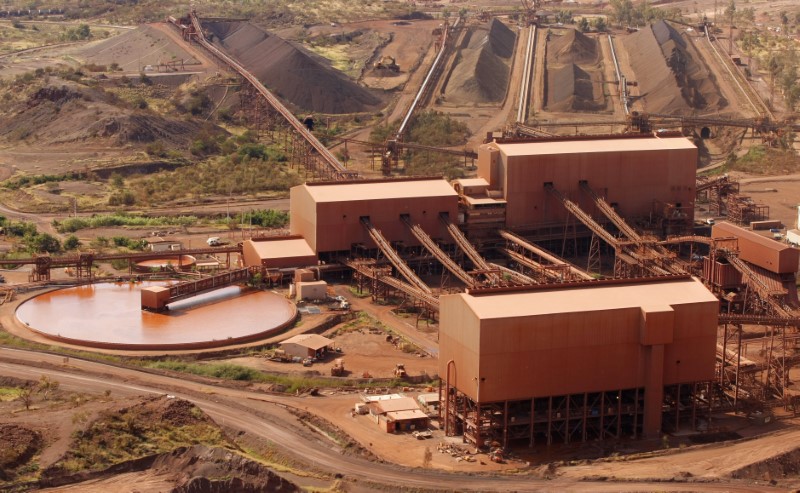LONDON (Reuters) - The value of global mining and metals deals hit a four-year high in 2017, according to accountancy firm EY, as financial distress abated and companies sold off non-core assets.
Mining and metals deals totalled $51 billion (36.46 billion pounds) last year, up 15 percent from 2016 and dominated by coal and steel transactions, although the volume of transactions fell 6 percent.
"The focus for most of the sector in 2017 was consolidating balance sheet strength and maintaining capital discipline," EY said in a quarterly report on the sector, published on Monday.
Coal transactions surged 156 percent to $8.5 billion as the world's move to renewables prompted miners to shift away from thermal coal.
One of the biggest coal deals last year was Rio Tinto's (L:RIO) sale of its Coal and Allied mines to Australia's Yancoal (AX:YAL) for $2.7 billion.
Steel deals doubled to $13.3 billion, mainly comprising large Chinese mergers and divestments in Latin America, while gold transactions fell 34 percent to $7.3 billion.
Money raised by mining companies from stock exchange listings rose to $2.8 billion, the highest in six years but paltry compared to the $17 billion raised in 2011 at the height of the commodities boom.
For the coming year EY expects deals to be fuelled by the industry's return to investment-led strategies aimed at building portfolios rather than divestment-oriented deals that dominated in 2017.
"We expect to see more deals in 2018 as investment-led strategies begin to dominate, but the return of transformational consolidation across the industry is unlikely as capital discipline is maintained," said EY global mining and metals transactions leader Lee Downham.
Prices of commodities such as copper, zinc, coal and iron ore surged for a second straight year in 2017 on a combination of dwindling supply and higher demand.
There will be renewed pressure on miners this year to participate in battery technology and reduce reliance on fossil fuels, EY said, while the drive to focus on business in lower risk jurisdictions should influence deals in precious metals.
